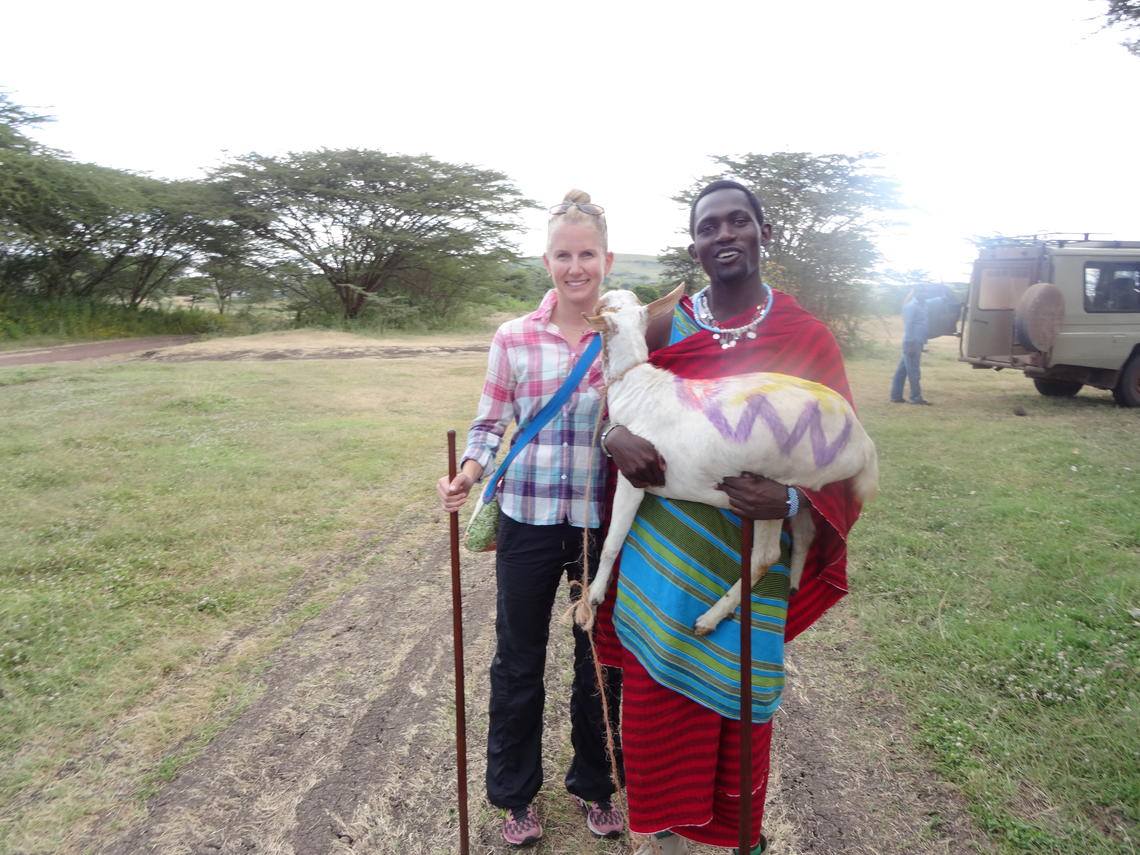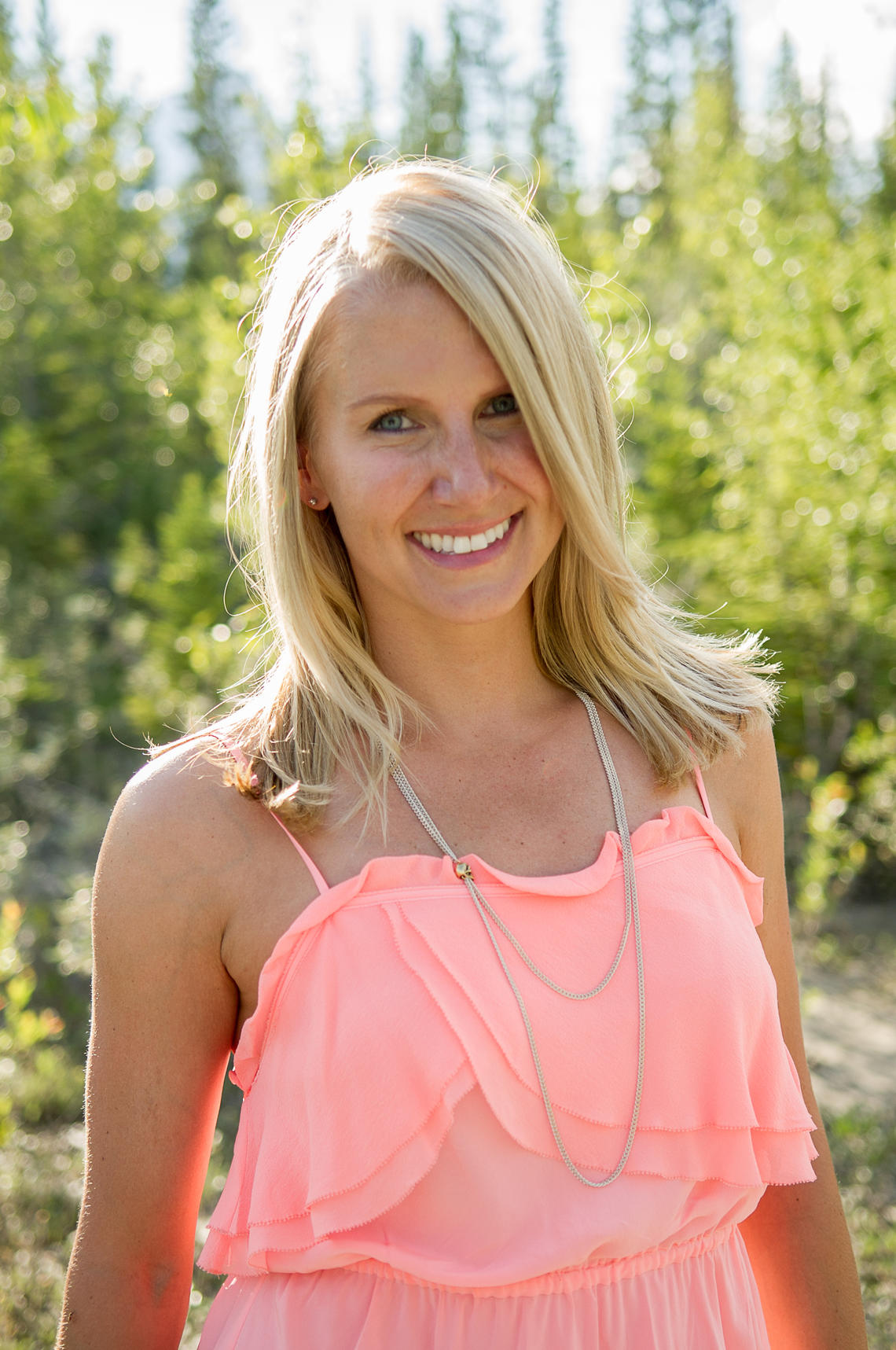June 12, 2014
Grad’s groundbreaking research began with stunning findings

A Maasai warrior brings a ceremonial goat to Lisa Allen Scott at One Health field school in Endulen.
Elias Charles
Lisa Allen Scott’s passion to improve global health awareness began with the stunning finding that malaria in a rural Tanzanian hospital was nowhere near as widespread as believed.
Allen Scott, a Vanier Canada graduate scholar receiving her PhD in population and public health on Thursday, was doing lab work to test the diagnostic accuracy that over 70 per cent of people presenting with fever had malaria. In fact, it was just two per cent of patients.
The over-diagnosis was the result of presumptive diagnosis and a treatment policy at the hospital. It also underscored the potential harm of unintended consequences of well-intentioned interventions, an often neglected area of study in an ever-complicated world of global health.
Allen Scott had found her focus.
“The unique challenges (of) understanding the importance of context and environment had me hooked,” Allen Scott said in an e-mail exchange from the University of Calgary’s One Health field school in the tiny village of Endulen, a five-hour drive from the nearest city in Tanzania.

Lisa Allen Scott's advice: “Take a chance."
Lisa Allen Scott
Making her mark as a leader, a teacher, and researcher
Allen Scott is poised make her mark as a global health leader, stressing the need for community engagement and an interdisciplinary approach to research. After taking her bachelor’s degree in biology and master’s in biomedical technology, she became a key leader in developing curriculum for students and faculty training in global health scholarship.
As a teacher, she is mobilizing networks of young researchers and publishing extensively while earning numerous grants and awards.
A scoping review of the types of unintended harm, outlining outlined potential reasons, was published in the International Journal of Public Health and chosen as the editor’s choice for February 2014.
“We found that public health interventions need to consider physical, psycho-social, cultural, economic and environmental harms during the development and (subsequent) evaluations,” said Allen Scott.
Allen Scott’s current work involves participation on a team investigating sanitation and hygiene project led by Sheri Bastien, a post-doctoral associate in global health and partnerships. She is testing a “think tank” process with input from an interdisciplinary academic team, local leaders, teachers, students and women’s groups. Such diverse perspectives allow for critical discussion on aspects with potential to generate harm, while expanding discussion on locally devised solutions.
“Lisa will be a leading light on the global health research stage,” said Jennifer Hatfield, associate dean for Global Health and International Partnerships in the Faculty of Medicine.
Through a decade of challenging situations in Ethiopia and Tanzania, Hatfield has seen her student become a consummate leader, able to marshal senior scholars to work together on important initiatives. She praised Allen Scott’s sense of adventure, flexibility and an amazing ability to speak “kitchen Swahili.”
“I foresee that she will start a new movement that ensures researchers will carefully analyze the unintended consequences of research that is done in low- and middle-income countries,” said Hatfield. “She will be known for creating tools and innovations to promote equality and ethical practice in global health research.”
Allen Scott says her research path has been inspired by University of Calgary mentors such as Hatfield and Guido van Marle, an associate professor in microbiology, immunology and infectious diseases in the Faculty of Medicine.
And her words of advice? Never refuse an opportunity to try something new.
“Take a chance,” said Allen Scott. “It is in those moments that your life can take a turn that puts you on an extraordinary path.”
